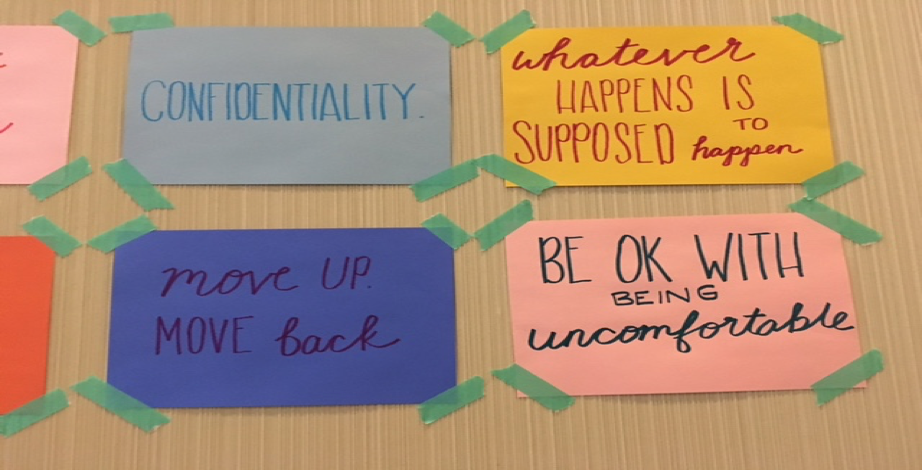June 13, 2017
By Janine Caller, Chapter Leader at University of New Mexico School of Law
Move up, move back. This is one of the community agreements we recognized at If/When/How’s Supporting and Centering People of Color (SCPOC) Working Group Retreat. This set of agreements was our pledge to each other, to get out of our comfort zone, to be authentic, and to also respect each other’s place within that space. “Move up, move back” is one of many personal agreements I decided to embrace at the retreat and when returning to my law school. I chose this one because of its multiple meanings, and how it immediately spoke to me.
As a group, we learned that this phrase means that if you are someone who usually speaks out and shares often, to take the opportunity to step back and listen more deeply instead. On the flip side, if you are someone who likes to be in the background, and does not share as often, then take the chance to “move up” and be heard. The latter is definitely me. The importance of encouraging this was, again, to get people out of their comfort zone and to be able to talk openly without feeling like your ideas and thoughts were not being heard or were less important. This also quickly identified how privilege can play into your own ideas of self-worth and feeling comfortable speaking up.
The working groups offered plenty of opportunities to get personal and be vulnerable. These two things terrify me. Even though I come from a place of privilege, I have always struggled with valuing myself and what I have to offer. This often prevents me from speaking up, and I, as my biggest critic, have forced myself to the background. However, the space that we were in was truly unique; it allowed for deep conversation, not just around race and privilege, but around our own personal — and very different — stories, in a way that felt at times uncomfortable, but also very supportive.
This idea of moving up, along with the immense inspiration from the retreat and sharing with people from all over the U.S. about their involvement inIf/When/How, gave me the motivation to run for president of my If/When/How chapter for this next school year.
I really like the idea of solidarity that If/When/How promotes, and I want to encourage this solidarity at my school. I know that my fairly new chapter faces difficulties in both maintaining an active presence on campus and in speaking to the intersectionality of race and reproductive justice. Our board has already discussed ways to be active this coming fall semester, and I look forward to putting those ideas in motion. Our board for next year will be all white co-conspirators and will be called to the challenge of addressing race and oppression from a place of privilege. With the tools that I gained at the retreat, along with the wonderful support of the people I met there, I hope to first move up to start the conversation, and then move back to support and create space for others to continue it.
The views and opinions expressed in this blog are those of the author(s) and do not necessarily reflect the views or position of If/When/How.
